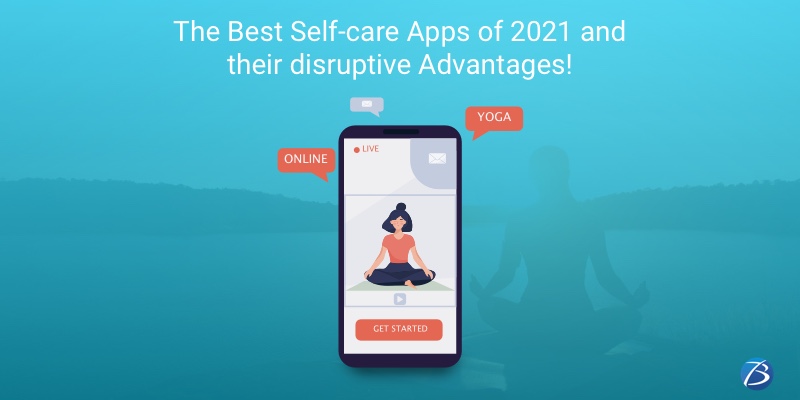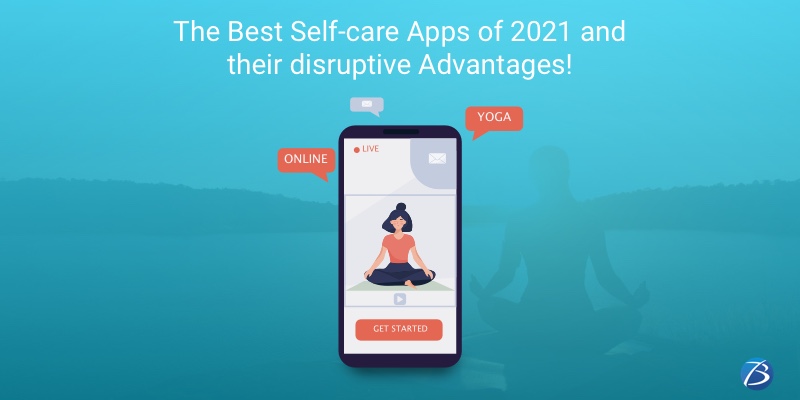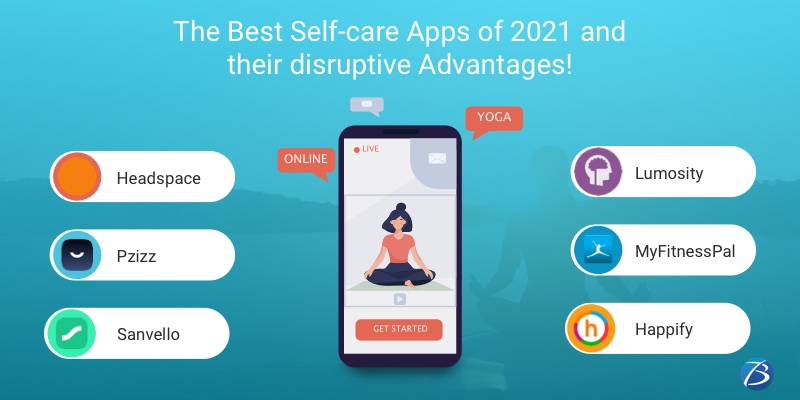Incredible Healthcare App Development Ideas to consider in 2021!
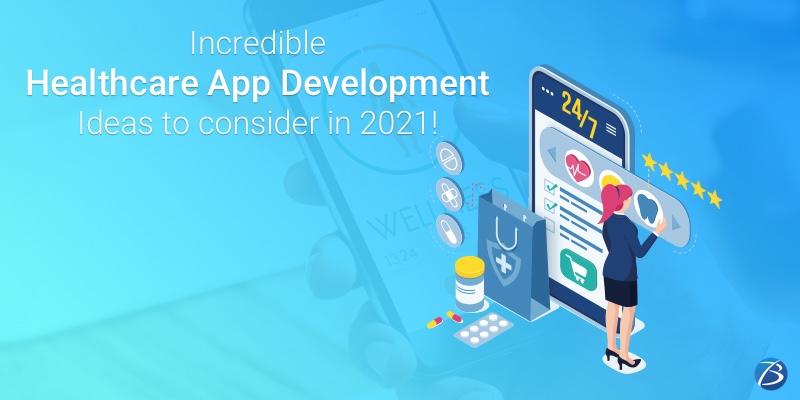

The Healthcare app industry is ever-evolving owing to a sky-high demand for unique apps that elevate the convenience quotient of users and the competitive healthcare app development market that keeps coming up with fresh novel ideas each year. Therefore, healthcare providers need to think about some workable, futuristic, and highly efficient healthcare app ideas to make their solutions popular amongst consumers.
Here are some highly sought-after healthcare app development ideas that will be apt for 2021! Check them out!
Handy Healthcare App Development Ideas
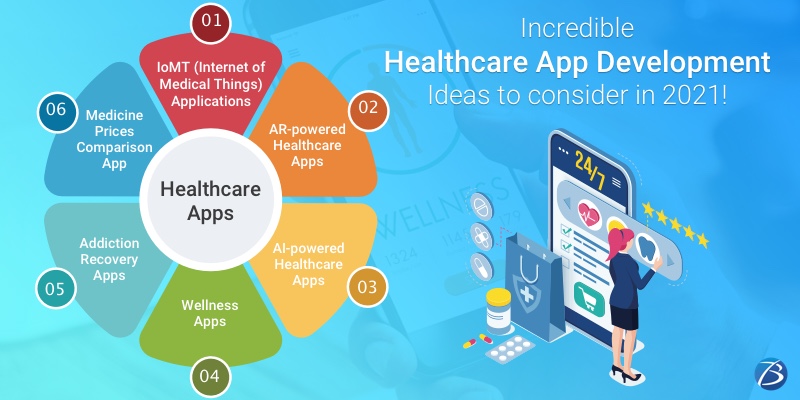
IoMT (Internet of Medical Things) Applications
IoMT is a host of medical devices, tools, and applications that employ networking technologies including IoT (Internet of Things) for establishing a link with medical IT systems using online computer networks. As such, medical professionals can connect and monitor healthcare devices through the Internet. Sensors are used for gathering patient vitals which are then sent to the IoT apps via the internet. Thereafter, this information flows to the medical experts/staff and a response is sent back to those patients. Such apps link patients to their doctors by transferring healthcare data via a secured network and as such play a crucial role in reducing the pressure on the healthcare system as well as the number of hospital visits for patients.
Use Cases of IoMT Apps
- Remote patient monitoring of patients suffering from chronic/long-term medical conditions
- Tracking of the location of the patients admitted in medical facilities, medication orders,
- Tracking the wearable mHealth devices used by patients and send the collected information to the concerned caregivers.
- Infusion pumps connecting to analytics dashboards
- Hospital beds equipped with sensors for measuring the vital signs of patients
AR-powered Healthcare Apps
Thermal Imaging App
These AR-infused apps contain a medical thermal imaging camera that produces a thermal image indicating the varying amounts of heat energy that a human body emits. Whenever an anomaly is noticed like a rise in the standard temperature, the app alerts the operators, thermographers, or doctors. Moreover, this thermal imaging camera is employed for monitoring a specific portion of the human body usually for detecting diseases, injury, blood circulation disorders, or high temperatures that cause inflammation. Besides, healthcare facilities, thermal imaging apps can be also put to use in public transit hubs, airports, public roadways, retail stores, offices, etc.
Medical Diagnoses App
An AR-powered medical diagnoses app allows patients to convey their symptoms more precisely to their practitioners or the concerned healthcare professionals. Such an application can also be connected to an AR-enabled handheld scanner for assisting nurses in locating the veins of a patient effortlessly.
AI-powered Healthcare Apps
Medical Training App
Such an app eliminates the need to use an actual human body while training healthcare professionals on performing surgeries.
Drug Manufacturing/Discovery App
The manufacturing of pharmaceutical drugs has always been an expensive as well as a time-intensive process. However, the usage of AI-based algorithms has made it possible to execute years-long processes in just a couple of months. Shorter development cycles and a lesser need for the compounds to be used for lab-testing have helped the pharmaceutical firms to resolve the two major challenges they have been facing since long – time-consuming manufacturing and huge expenses involved.
In the near future, AI-infused applications are expected to play a crucial role in medicine discovery as well. This is because the employment of Artificial Intelligence eases out, speeds up, and enhances the processes of pattern recognition, target selection/validation, compound screening /lead optimization, pre-clinical studies, clinical trials, etc. Such healthcare app ideas promise a bright prospect for app owners.
Personal Training App
This app category is quite popular amongst the masses as such apps enable users to access the benefits of gyms as well as personal trainers using their mobile handsets. Employing AI, an app can design fitness and workout sessions without the need for human intervention or interaction. After being digested/passed via several algorithms and paired with anonymized data gathered from individuals across the globe, AI is capable of optimizing regimens concerning nutrition, exercise, fitness, etc. for users as per their personal goals. In fact, personal fitness routines have become more precise with the passage of time owing to ML/AI algorithms.
Wellness Apps
Diet planning Apps
Such apps organize eating regimes as per the wellness objectives and the current bodily requirements of users. Consumers have to just choose their diet type – vegan or non-vegan – and mention their preferences to the app for receiving the diet arrangement. Some of these apps even provide a suggestion as to which nutritionists the user should consult.
Emotional Wellness/Mental Health App
The stress-prone and fast lifestyle of modern-day individuals drive the need for an app that addresses issues pertaining to emotional well-being. Emotional wellness apps prove highly beneficial in fighting depression, anxiety, PTSD, and other mental health woes.
Such an app can even provide the facility of mental health tracking for lonely individuals, elderly people, etc. Usually, chatbots are employed for playing the role of mindfulness coaches, anxiety helpers, mood trackers, and mood-boosting buddies. Some apps use music therapy for uplifting emotional well-being.
Self-testing Apps
Such an application enables users to keep a watch on their body vitals without the help of any external medical consultant/agency. Consumers can conduct certain medical tests at home leveraging the power of robust sensors contained within smartphones. This allows users to regularly monitor their health and act based on the results generated. Such an arrangement not only saves time and expenses but also saves the effort to visit a lab or medical facility for conducting tests. Body vitals like blood sugar, blood pressure, heart/pulse rate, etc. can be monitored through such applications.
Weight Management Apps
Weight management apps come with outstanding features like wearable devices connectivity, calorie/water intake tracker, BMI calculator, customized diet plan from dieticians, workout guidance, interaction with fitness experts through video conferencing, etc.
Addiction Recovery Apps
These apps offer practical help to individuals struggling to get rid of cigarette/alcohol/drug addiction. The users can sign up using nicknames instead of their real names to protect their privacy. The users are provided with a host of meaningful material such as inspirational videos for ditching abusive products, content containing information regarding the health issues caused by various psychotropic and psychoactive drugs, nicotine, alcohol, etc., and information indicating their long-term impact on the health/social life of the addict. The users can also directly connect with experts like psychologists, medical professionals, etc.
Medicine Prices Comparison App
Modern customers are often baffled and perturbed by the fact that the prices of medicines greatly differ based on the pharmacy. So, there are apps that assist customers to compare the prices offered by various pharmacies/sites before making a purchase and enable them to hit the best deal. The real-time drug prices from different providers are consolidated at one single platform to guide the customers for making the correct decision and saving money.
Besides, such a platform can be converted into an eCommerce portal that sells and delivers medication at affordable rates.
Are You Interested in Building a Top-Class Website or Mobile App?
Final Words:
Aren’t these incredible ideas for healthcare mobile app development? Well, if you are on the lookout for well-experienced and highly proficient healthcare app developers for crafting an amazing medical app with distinct and attractive functionalities, contact Biz4Solutions, a prominent healthcare app development company.

